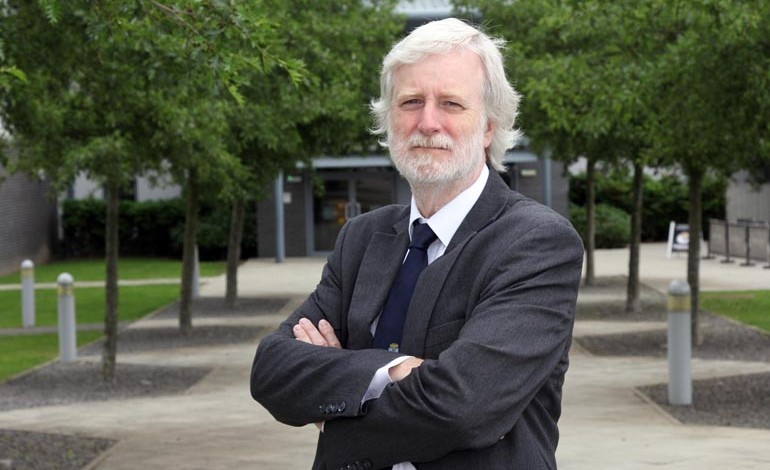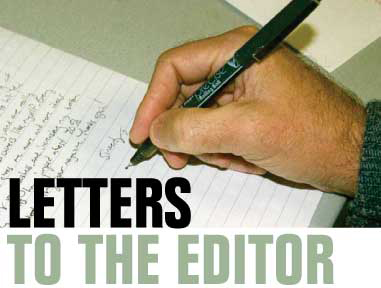Dear Sir,
Last Wednesday I was invited by Durham University’s Energy Institute (DEI) – in my role as Durham County Council Climate Change Champion – to a virtual meeting to discuss what one delegate described as “our inadvertent climate experiment”.
Early on in the crisis (19 March), DEI Professor Simone Abram had published an article in the academic journal The Conversation suggesting that Coronavirus had slashed CO₂ emissions and “provided us with an opportunity to keep them down” … and the meeting was to explore those opportunities.
HEALING NATURE
There is no doubt that the pandemic has been good for Nature, and also that people are noticing. You can SEE the reduction in pollution from space. Songbirds and hedgehogs are recovering in numbers; deer are wandering into deserted town centres … and people are liking it. They are also liking the reduction in traffic to 1950s’ levels; some towns have shut roads to vehicular traffic, and cycling & walking groups are urging that they should do more whilst they have the opportunity. Less obvious has been the shift in demand patterns which has meant that, for the first time ever, the UK has had 18 consecutive days with no coal used in electricity generation.
By chance, my DEI meeting coincided with the 50th anniversary of Earth Day – that international day when people “protest environmental ignorance and demand a new way forward for our planet”.
THE POST-COVID CLIMATE
And so the meeting discussed environmental opportunities for a post-Covid world. Will it be possible to redirect money from roads into public transport? What are the opportunities for embedding less climate-damaging diet and consumption-patterns?
This is not just about climate, moreover, and the discussion rapidly broadened into social and economic issues. How might we turn investors’ attention to social returns, not just financial? The pandemic has highlighted the UK’s poor record on homelessness, poverty (particularly fuel poverty) and housing. In particular, it has forced us to reassess whom we regard as ‘valued’ ‘key’ workers, and the call is that in future we should recognise monetarily the contribution of people who only a few weeks ago were being labelled by the government “low-skilled or temporary”. Can we improve the pay and working conditions of NHS workers, binmen, supermarket assistants, lorry drivers etc. … now we have realised that it they who really make the world go round?
LINEAR OR DOUGHNUT?
Professor Simone Abrams herself hoped that “the door is gradually opening” to the realisation that we cannot continue our current laissez faire linear capitalism – which plunders the earth harmfully at one end, turns it with maximum damage into transient consumer trash with built-in obsolescence, and then throws it away into the sea at the other end. Delegates spoke favourably of the Amsterdam ‘doughnut’ economic model – a controlled economy which seeks first to provide everyone with their human-rights basics (food, clean water, housing, sanitation, energy, education, healthcare, gender equality, an income and a political voice – the doughnut’s ‘hole’ that no one must fall into), and then sets a ceiling on consumption (the sprinkles on the outside edge) which is limited by the earth’s capacities – climate, soils, oceans, the ozone layer, freshwater and biodiversity.
IS IT ACHIEVABLE?
I fear I was a good deal more negative than the meeting was happy with. My personal fear is that – far from being able to build on the benefits that we have seen – we may lose many of the climate and environmental advances that we have achieved in the past two years.
Are people emerging from lockdown going to stomach suggestions that we should voluntarily continue its restrictions to save the planet? There will be a strong campaign to holiday in Britain, but is there not a danger that people want to get back in their car, or fly abroad for a holiday? And I know that we have suddenly realised the dietary value of bread, milk and eggs … but is it not more likely that there will be a binge on meat and McDonald’s rather than a venture into veganism? Will households impoverished by lockdown go out and buy expensive/lasting-quality … or throw-away/cheap?
The economy has taken a huge hit. Yes there is less pollution and less traffic … but only because we have shut down two-thirds of our economic activity; we cannot sustain such a reduction. Already the call is to relax the restrictions and reinvigorate the economy – Business Durham is discussing ‘how’ for County Durham as I write – and is there not a likelihood that the call will be for more consumer spending, more production, more trade and traffic … and (the danger is) all that at any cost? Will firms hanging on from bankruptcy by a thread and needing to pay back government loans (nb not grants) … will they agree to an increase in the minimum wage, and calls to end agency work & zero-hours? The price of oil fell below zero last week – does anybody see any chance of us reducing our use of this now all-but-free fossil fuel?
The government has had to throw money at the problem to prevent society collapsing. Chancellor of the Exchequer Rishi Sunak has already stated that we will have to ‘pay it back’ – and it would be a brave person who predicts anything but a future of extended austerity. Councils, meanwhile, have by law to balance their budgets, and it will test the resolve of even the most climate-conscious councils to maintain low carbon budgets against the economic and social needs generated by the pandemic and the lockdown.
THE LESSON OF HISTORY
So I am NOT confident that the undoubted environmental lessons of the pandemic will lead to an awakened world of increased climate action; indeed, I fear that we will have all on not to yield to voices which would have us roll back our climate commitments and societal aspirations.
Seventy-five years ago next week, VE Day brought the Second World War in Europe to an end. To maintain the public’s war effort, the government had undertaken a massive consultation on the sort of Britain people wanted to see after the war. Their message was “bread for everybody before cake for anybody”, and that directive resulted in the Beveridge Report, the Welfare State, free secondary education, a council housing boom, and the NHS. It also resulted in the creation of Newton Aycliffe as the flagship of Beveridge’s vision; we are that legacy.
But that achievement came out of six years of war and a clear government commitment, not out of six weeks of lockdown and some vague aspirations for a greener, fairer world.
One thing that life has taught me is that the rich and powerful are always ready and planned on how they can gain from disaster. If we are to come out of this disaster not having LOST ground on where we were, we need to make very clear the voice of the ‘angry young people’ in Joni Mitchell’s song Banquet:
“Tell them we’re very hungry now for a sweeter fare.”
Cllr John D Clare
DCC Climate
Change Champion









